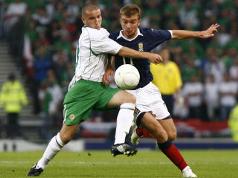The first casualty when war comes is truth
So said Senator Hiram W Johnson in 1918, and over 90 years later, it still rings true.
Written under a cloud of despair, ‘The First Casualty’ (Revised Edition, 2002) by Phillip Knightley laments what he sees as a dilution of truth within spheres of war reporting. He cites a correspondent’s patriotism, military censorship, and the inability and indolence of the press to analyse official press releases as some of the reasons for this perceived demotion of the truth. His anger, and later dismay, that truth is indeed ‘the first casualty,’ seeps through the pages, and lead to him predicting that “governments [and] their spin doctors … will find further justification for managing the media in wartime … [and that] control of war correspondents will be even tighter.”
Indeed, Knightley’s prediction of tightening control on war correspondents leads him to despondently associate this with the demise of the war correspondent, and the death of his hero status.
Picking up on this is a comment piece by Kevin Myers in Friday’s Belfast Telegraph entitled ‘Why the Falklands is proof that truth is the first casualty of war’. Referring to an article in last month’s Torygraph he picks away at the misleading language, concluding that the 22 men who supposedly “saw off Argentine invaders” and gave them their first bloody nose in fact surrendered meekly after just two hours with only one man slightly wounded. Referring to the power of myth, Myers points out that looking back at history which is ours, we inevitably exaggerate and puff it up. With reference to 1916, he concludes
And no memory is immune to the mighty power of myth. Australian social historians were able to chart the change in the recollections of Gallipoli veterans, as the events in the truly myth-laden film ‘Gallipoli’ became indistinguishable in the veterans’ minds from their own experiences.
The power of myth is not that it is based on actual historical events. Its power derives from the needs of the people who pass on the myth. Thus Royal Marines want to revel in a victory nearly 30 years ago, though it simply did not happen.
Equally, Irish republicans wanted their own mythic, martial giants to rival the British heroes like Wellington and Nelson, and so have conjured them out of the motley band of 1916.
We tell tales. We all do. But we should remember. They are just tales. And when we turn baseless myths into icons of national identity, we are trading in a currency that is liable to inflation; for there are always those who will exult in a more extravagant and bloodier version of the myth, usually with contemporary political consequences.
One has to look very hard under the surface if one is interested in real truth. Be that history, religion, football, whatever. In each of these examples, there is always a side to be took. And when bias comes into it, truth gets distorted, it gets exaggerated or played down, depending on whether it suits us or not.



 Posted by bertmart
Posted by bertmart 